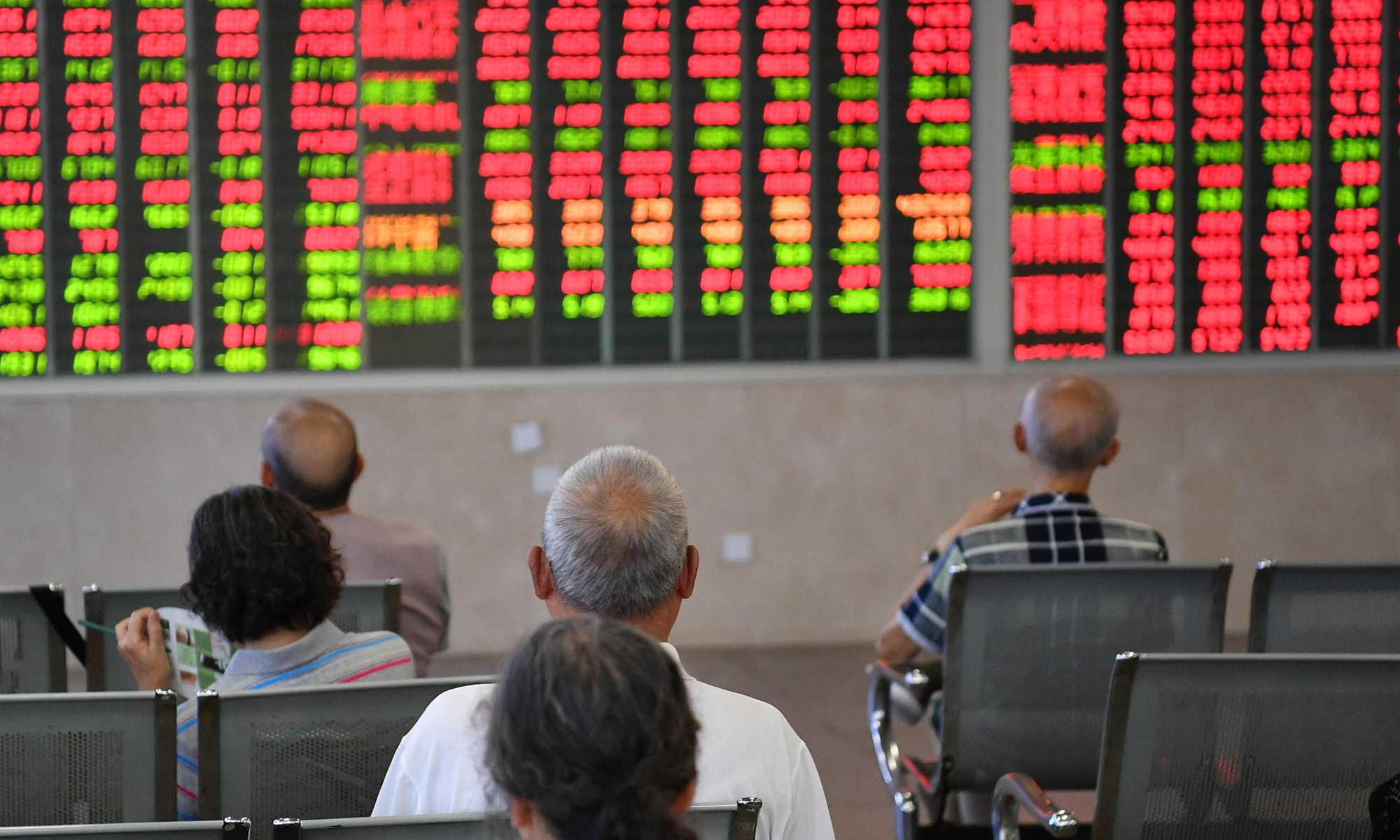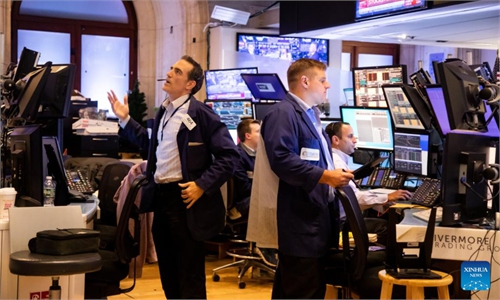
Stock market Photo:VCG
China’s capital market recorded a degree of fluctuation in the wake of an overnight US interest rate hike, with stock markets edging down and the yuan depreciating against the US dollar despite remaining well within an expected range.
Mainland stocks edged lower at opening of trade on Thursday after the US Federal Reserve increased interest rates by 75 basis points on Wednesday. The benchmark Shanghai Composite Index (SCI) edged down by 0.59 percent at opening, while the Shenzhen market fell by 0.77 percent.
The increase was the Fed’s fifth interest rate hike this year and the third time the Fed hiked rates by 75 basis points.
The ChiNext board jumped back into positive growth territory for a short period after stock opening. As of press time, the board was 0.14 percent lower. The benchmark SCI also edged down by 0.29 percent.
The dive on Hong Kong stock market was sharper than seen on the mainland. During the Thursday morning trade session, the benchmark Hang Seng Index once slipped beyond 18,000 points, the first time since December 2011. As of press time, the Hang Seng Index was down by 1.88 percent.
As to the exchange rate market, the yuan’s central parity exchange rate weakened 262 basis points to 6.9798 against the US dollar on Thursday, according to the China Foreign Exchange Trade System. Offshore yuan stood at 7.09 against the US dollar as of press time.
Yang Delong, chief economist at Shenzhen-based First Seafront Fund Management Co, said that the monetary policy environment for A shares is generally better than the US.
“China does not hike interest rates along with the Fed, and liquidity remains relatively abundant,” he said, adding that the influence of US Fed hikes had been expanded throughout a recent three-month correction, and that it was unlikely that the market would slump further.
He anticipated that mainland stocks might perform better over the fourth quarter with gradual implementation of monetary policies aimed at stabilizing the domestic economy, and as China’s economic activities continue to recover.
Global Times



